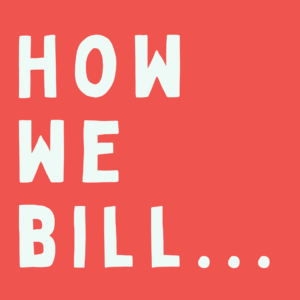Business partnerships usually start with trust, a shared vision, and a whole lot of excitement and optimism. And amidst this positive energy, way too many partners neglect to create a framework for the partnership in the form of a joint venture agreement (“JVA”) or a shareholder agreement (“SHA”). This is a crucial misstep that can ultimately be disastrous for the business venture and their relationship. A partnership agreement is a must!
Disputes, misunderstandings, and disagreements are natural parts of any business journey. Without a partnership agreement, these common challenges can escalate into serious legal battles. Moreover, in the absence of clearly defined roles, responsibilities, and financial arrangements, even the most solid partnerships can crumble under the weight of ambiguity.
Why do People Neglect Partnership Agreements?
When you enter into a business partnership, it is usually for a new venture that is exciting and that demands a lot of attention. If the partnership is set up around a new investment, then the partners may be focused on due diligence, market research, and transaction contracts. An investment in real estate may involve construction or remodeling. And if the partnership is for a new operational business, then the partners may be sourcing product inputs, developing a cool logo and brand, hiring staff, pitching to new customers or investors… along with a million other things.
A partnership agreement sounds complicated and abstract. It sounds like something that is going to eat up a bunch of time and brain power, and something that isn’t going to make money for anyone except the lawyer.
And besides, you wouldn’t partner with just anyone. Your partner is probably a close friend, perhaps even a family member… or someone you have connected with intellectually around this new venture. You are aligned. On the same page. And in a way, agreeing to postpone a partnership agreement in favor of more immediate priorities can even feel like a demonstration of mutual faith in the partnership.
But guys – this mindset can be (and often is) a recipe for disaster.
What Can Go Wrong in the Absence of a Partnership Agreement?
One might think that the shit is most likely to hit the fan when the business venture is not going as planned. This creates an unanticipated scenario in which decisions have to be taken about the best course of action. For example, the parties may need to agree whether to invest additional money in the venture, or to try to raise new money from outside the current partnership. And even if the parties agree on this in principal, there are lots of opportunities to disagree about the details.
How much new capital does the business require? Should the we take on more debt? Should we bring on a new partner? Under what terms?
Should we change the business strategy entirely? Lay off half the staff or expand the team? Cut our losses and go home, or ride out the storm?
Just reading these questiosn is enough to stress you out. And in the absence of a partnership agreement that gives a framework for navigating such decisions, any disagreement at all between the partners can paralyze the venture.
But partnerships can also fall apart when a business venture is going extremely well. Or even BECAUSE it is going well.
Maybe one partner believes that it is time to exit, but the other things that selling now would leave too much money on the table.
And if you do decide to sell, or if the venture brings in a bunch of free cash flow, then should that money be reinvested or distributed?
Even the distribution of money to the partners can become convoluted in the absence of a partnership agreement that clearly sets out the rules of the game. Especially if some partners have funded a disproportionate amount of money compared to the others!
What Should a Partnership Agreement Cover?
Depending how complex your partnership is, you probably will consider working with a lawyer to put it together. A good lawyer can help you to draft your agreement to cover a broad range of hypothetical scenarios. She will also help you move past this stage efficiently so that it doesn’t distract the partners for too long from the business venture itself.
But here are some considerations that you may want your partnership agreement to cover:
- How will the partners resolve any disputes between them? Not just how – where, by whom and based on what legal framework?
- If the partnership is incorporating, then how will the shares of the company be issued? And what are the rights and responsibilities attached to those shares?
- What sort of capital resources will the venture require, and where will the partnership source capital? If the partners are investing money in the partnership, how will they fund that capital and under what terms?
- Will this be a working partnership? The agreement should acount for how any of the partners may have ongoing responsibilities to the business and partnership.
- How will the partnership take decisions? Which decisions will be taken by the shareholders vs. a board of directors? Who will appoint the board of directors? And will all decisions be subject to the same voting mechanism? Or are there some decisions that should be subject to a higher threshold?
Bottom Line?
I get it – there are a million things on your to-do list when you are starting a new venture. And drafting legal documents is probably not be the most thrilling task.
But disputes, misunderstandings, and disagreements are natural parts of any business journey. Without a partnership agreement, these common challenges can escalate into serious legal battles. Moreover, even the most solid partnerships can crumble under the weight of ambiguity regarding roles, responsibilities, and financial arrangements,.
So, a partnership agreement is not just a legal safeguard; it’s a strategic blueprint for your business. It’s your protection against unforeseen circumstances and the key to a harmonious, thriving partnership.
If you need help creating an agreement for your partnership, then I would love to hear from you. You can write to me at info@theindependentlawyer.com.





